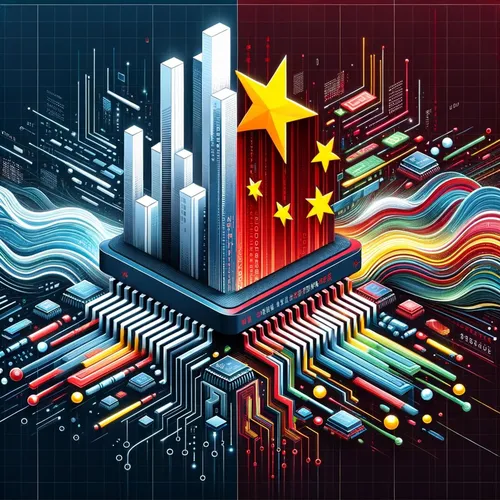Tech Tussle: Google Flags China Hacks, Nvidia's Chip Tightrope, and an Insider Threat Plot Twist!
- Author
- Quiet. Please
- Published
- Mon 25 Aug 2025
- Episode Link
- https://www.spreaker.com/episode/tech-tussle-google-flags-china-hacks-nvidia-s-chip-tightrope-and-an-insider-threat-plot-twist--67509979
This is your Beijing Bytes: US-China Tech War Updates podcast.
Hey listeners, Ting here—your Beijing Bytes insider, hacking into the heart of the US-China tech war faster than a malicious script lands in your inbox. Let’s dive right into the past two weeks, because the digital battleground between Washington and Beijing has been anything but quiet.
First up, cybersecurity drama: Google’s Threat Intelligence Group flagged a China-backed espionage campaign by the hacking collective UNC6384, targeting diplomats in Southeast Asia. These hackers didn’t just slip in through virtual windows—they compromised Wi-Fi networks, then tricked diplomats into installing malware disguised as software updates. Patrick Whitsell from Google confirmed the malware’s sneaky SOGU.SEC payload was injected directly into memory, dodging most security tools and, yes, definitely supporting China’s strategic data-gathering ambitions according to Google’s technical forensics. Meanwhile, Microsoft reported Chinese state-backed actors exploiting new vulnerabilities, prompting a flurry of finger-pointing—Beijing even accused US spies of hitting Chinese military firms in retaliation. To keep things spicy, Germany just nabbed an American at a US military base for offering to spy for China, so clearly nobody trusts anybody in this code war.
On the tech restriction front, the US is doubling down. New rules are on the horizon to keep Chinese-made connected cars and smart components off American roads. Both Donald Trump and Kamala Harris, with the 2025 US election looming, are promising to escalate controls—Trump favoring tariffs and blunt instruments, Harris going for more focused, coordinated blocks. For companies, this means more hurdles, especially in AI, chips, and software. Peter Harrell, formerly of US national security, calls it “the opening of a new front”—targeting everything from your TikTok feed (which must be sold or banned soon) to ordinary gadgets loaded with Chinese parts.
Let’s talk semiconductors—I’m looking at you, TSMC and Nvidia, the absolute MVPs of tech geopolitics. TSMC in Taiwan is ripping out all Chinese-made manufacturing tools from its 2nm production lines, directly responding to pending US restrictions like the CHIP EQUIP Act. According to Nikkei and TrendForce, anyone taking US funding in chips can’t buy equipment from Beijing-linked companies, so TSMC is reviewing every supply chain nook for China-made gear to avoid shutdown. This is massive, since TSMC’s AI chip revenue just hit $31.7B last quarter! At the same time, China’s pushing homemade manufacturing tools, but as of this week, they’re still trailing behind the West in bleeding-edge processes like lithography.
Nvidia is walking a semiconductor tightrope. Despite the US halting shipments of its advanced H20 chips to China, Nvidia has started working directly with the Trump administration on new chip models tailored for just enough compliance. This week, Nvidia and AMD even agreed to surrender 15% of their China chip sale revenues to the US government—a Silicon Valley taxman’s dream, no? But China isn’t idle; homegrown AI chip startups like Cambricon, and DeepSeek touting the imminent release of a “next-gen” AI chip, signal Beijing’s push for digital self-reliance, especially for ultra-scaling data centers. Meanwhile, applied materials, a major chip tool firm, reported slowing China demand after US export curbs started to bite.
Let’s not forget the odd twist: a US-based Chinese developer, Davis Lu, just got a four-year prison term for planting a kill-switch and crashing his employer’s systems out of spite, not politics. Insider threats—always the boss fight nobody wants.
So what’s next in this digital brinkmanship? Experts from Fortune and the South China Morning Post forecast a tech war that only ramps up: more restrictions, less trust, and a global market reshaped by whichever side’s code runs the...
